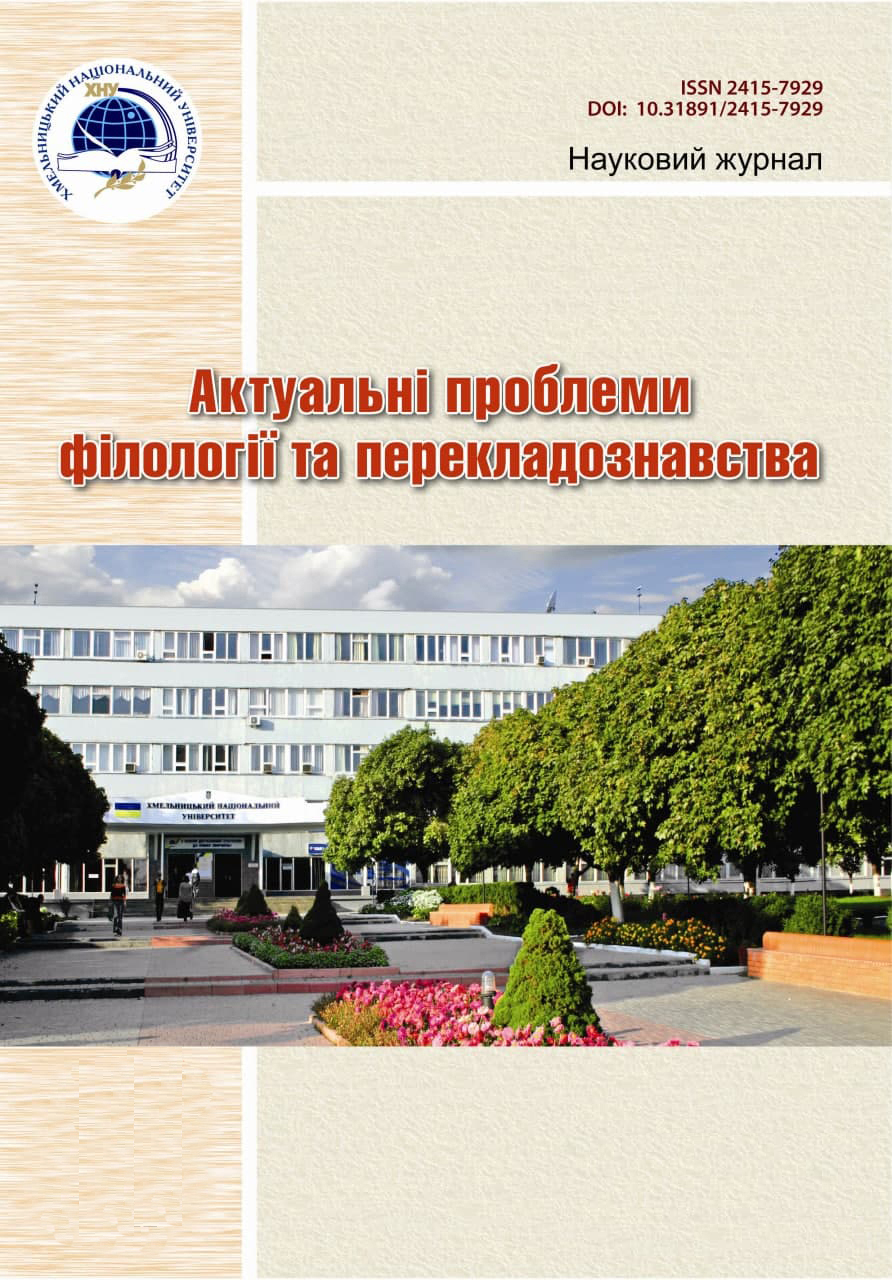ENGLISH TERMINOLOGICAL VERBS OF MENTAL ACTIVITY: LEXICO-SEMANTIC AND TRANSLATION ASPECTS
DOI:
https://doi.org/10.31891/2415-7929-2023-28-2Keywords:
terminological vocabulary, English language, psychological and social sphere, translation aspect, verbs with semantics of feelingsAbstract
A group of words with an emotional meaning stands out in the vocabulary of the English language. Analyzing the verbs of the English language, it is important to consider their semantic and functional properties and divide them into two broad groups: verbs that name physical activity and verbs that name mental activity. Such verbs have denotative semantic characteristics: laughter, sadness, anxiety, joy. External manifestations of feelings reflect certain verbs, for example: laugh, cry, smile, and frown. Such verbs are treated differently in the linguistic literature. Some qualify these lexemes as a separate subgroup of mental activity, others separate them into another group altogether and call them verbs for indicating emotions using facial expressions and voice. Such verbs as laugh and smile convey the semantics of satisfaction, which is manifested in the behavior, actions or facial expressions of a person. Verbs and verb expressions that are synonymous with the verb laugh can also have a negative meaning. It is necessary to consider some synonymous series of fear, i.e. negative vocabulary. As in the case of verbs that express pleasure, at least two groups can be distinguished: verbs of internal manifestation of fear, and verbs that describe fear. In each emotional meaning of the word, you can find some invariant semantic features: the strength of the emotion, duration, positivity or negativity of the feeling. Depending on the negative or positive meaning, the semantics of verbs can change, as the relationship to the object changes, and therefore the evaluation. It follows that verbs can be synonymous, but expresses different emotions. This can cause some difficulties in translation. Also, from the examples given, we can see that sometimes verbs that do not belong to the group of verbs of mental activity, under certain conditions, become their component. The semantics of the verb can change depending on the context and certain circumstances.
Downloads
Published
Issue
Section
License
Copyright (c) 2025 Є. В. ДОЛИНСЬКИЙ (Автор)

This work is licensed under a Creative Commons Attribution-NonCommercial-NoDerivatives 4.0 International License.

